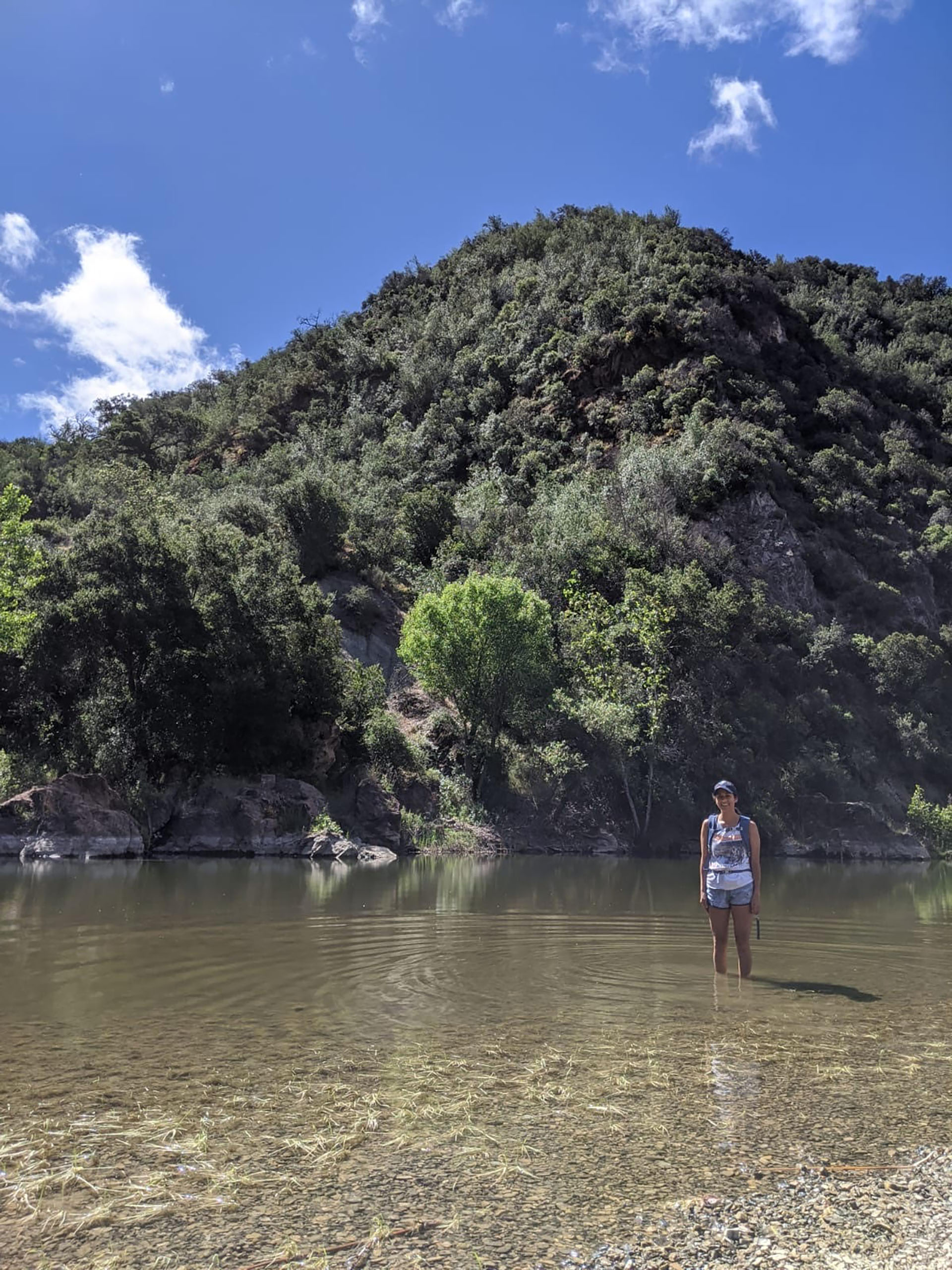Like many people who gravitate to the Bren School of Environmental Science & Management, Natalie Shahbol has always been interested in the sciences, but not necessarily in the lab. As an undergraduate at UCLA, she saw many students choosing a health sciences route. “I didn’t want to be a doctor or go into the medical field; my interests aligned with the environment. The courses excited me, so the decision to major in environmental science with a focus on engineering came from there.”
Natalie was raised in the San Fernando Valley, Los Angeles. She was aware early on that California has many water and environmental challenges, and when she got to UCLA, “it was easy to get involved. I interned with a group called Heal the Bay, working on urban water issues, ocean cleanups, advocating for marine protection.” As graduation approached, she started looking into a higher degree, narrowing her field to graduate schools that would prepare her for a profession.
“By then I had decided I didn’t want to go down the engineering route; I wanted to do something connecting the environment with policy.” It was her supervisor at Heal the Bay, a Bren alumna, who first introduced her to the school. Through her, she met other Bren alumni, “people whose careers I was interested in. I liked their jobs and it seemed like they did too.” So she applied for and was accepted to Bren.
Each cohort at Bren is a diverse mix of students of different ages, skill sets, perspectives and experiences. Natalie found her team through her interest in local-level water issues. Their group project involved gathering data on the impact of pyrethroid pesticides on water quality and on an endangered fish species in a Ventura County watershed. “Pyrethroids have gotten more popular because they’re less toxic to humans, but unfortunately they’re more toxic to wildlife.”
I feel the most important environmental problems today have to do with water. We can’t live on a planet without water. Change is going to take a long time, but I’m hopeful that there are solutions.
Since group projects are real-world consulting experiences, this was a powerful addition to Natalie’s resume, and shortly after graduating from Bren she was on her way to Washington D.C. for a research fellowship with the Environmental Protection Agency. Eight months later, she applied for and is now a Program Officer with the World Wildlife Fund’s Free-Flowing Rivers Initiative. “The initiative’s goal is to keep the world’s iconic rivers free flowing. We work in eight regions globally, doing spatial analysis and using data to inform policy.” She has recently been focused on planning and protection for rivers in Nepal and the Amazon Basin.
“I really like the people I work with, and I get to work with people around the world, learning about the politics in local issues in each country, and how different each one is. It keeps my work challenging and interesting.” Natalie has found that in addition to her group project, her most applicable coursework has been statistics. “Learning how to translate data to make policy recommendations has been crucial for my career: telling a story from numbers in a way that makes people care.”
Natalie is still based in D.C. “This is a good place to start and expand a career in this field, especially in international water issues. I know there will be a lot of career opportunities here,” she says, pointing to her positive networking experiences. “I reached out to a handful of folks working in D.C. who helped me understand how to get myself out here. And since I’ve been here, others have reached out to me, too.”
Living in a bustling city has given her a special appreciation for the time she spent in Santa Barbara. “The location was truly great. Grad school is a stressful time in life, and I appreciated living in a place where you can enjoy fresh air and ocean breezes, the unique landscape.” Natalie and a classmate managed to eke out a little time to learn how to surf. “The Campus Point break is just a ten-minute walk away!”
As someone who took just a year off after college before going to grad school, then to career, Natalie offers a holistic perspective to prospective students: “This is a good time in your life to try things. It’s an opportunity to do something or live somewhere that’s very unique.” And because the Career Center “is one of the best things about Bren,” connecting students with internships, networking and employment opportunities, Natalie says to be sure and take it all in while you’re there. “If you’re looking for a program that prepares you for a career, Bren is great. And so is the location. Enjoy it before you’re in your long-term career!”
What inspires her now? “I feel the most important environmental problems today have to do with water. We can’t live on a planet without water. Change is going to take a long time, but I’m hopeful that there are solutions.”
